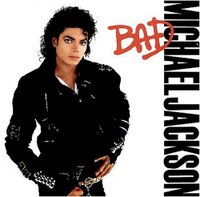
NY Times reports on the latest financial travails of Michael Jackson...and it don't look good at all. In fact, it looks just like the same damn story that we regular mortals face: Crippling Credit Interest.
The boys at Sony (his label, and co-investors in Mike's Music Catalog assets incl his own and The Beatles) called him for a secret meeting last December about getting his money woes in order. Ironically, Michael held the meeting in a $9000 a nite suite in Dubai - great start to your debt counselsing session, Mike! But why does Sony care about Mike's money? Well, as halfsies on a profitable music catalog, they don't want his half getting sold off in a garage sale to an even more unpredictable partner. Makes sense. It seems the conclusion of the meeting was that Sony would vouch for his Citigroup loan of $300 million...and he forfeits yet more ownership chips in the catalog to the bank.
But how much has this dude blown in a lifetime of "success"? And how did interest get him in debt consolidation counseling?
Some excerpts:
Sales of his recordings through Sony's music unit have generated more than $300 million in royalties for Mr. Jackson since the early 1980's, according to three individuals with direct knowledge of the singer's business affairs. Revenues from concerts and music publishing — including the creation of a venture with Sony that controls the Beatles catalog — as well as from endorsements, merchandising and music videos added, perhaps, $400 million more to that amount, these people believe.
"I think that Michael never had any concept of fiscal responsibility, or logical fiscal responsibility. He was an individual that had been overindulged by those that represented him or worked for him for all of his life," said Alvin Malnik, a former financial adviser to Mr. Jackson and a former lawyer for Meyer Lansky, the late mob kingpin. "There was no planning in terms of allocations of how much he should spend. As a businessman, you can forecast your spending for the next six months to a year. For Michael, it was whatever he wanted at the time he wanted.
It's possible that Mr. Jackson's biggest costs may have shifted in early 2000 away from his shopping sprees to simply shouldering enormous monthly interest payments on his debt. According to one executive involved in his affairs, Mr. Jackson was making monthly payments of about $4.5 million in 2005 on $270 million in debt. That works out to an annual interest rate of about 20%, a toll more familiar in the worlds of credit cards, subprime lending and loan sharks and not commonly encountered by wealthy people with substantial assets. But Mr. Jackson's wildly errant spending had forced him to confront harsher realities.
By the time Mr. Jackson finally met with the Sony executives in Dubai last December, his onerous interest payments had left him in a bind. Fortress Investment Group, a New York-based investment group that specializes in distressed debt, bought Mr. Jackson's loans from Bank of America in 2003 after the singer missed some payments. It then began levying high interest rates. Fortress, which did not respond to an interview request, threatened to call its loan on Dec. 20 last year because of Mr. Jackson's delinquency. What especially concerned Mr. Jackson about that, said one person familiar with the talks, was that it was just five days before Christmas.
To keep Mr. Jackson afloat, Sony arranged an extension with Fortress and brought in Citigroup and other potential lenders to arrange new financing at a lower rate. At a meeting in London on Valentine's Day earlier this year, Citigroup offered Mr. Jackson a new loan with a 6 percent rate. Citigroup struck a deal because Mr. Jackson agreed to give Sony the right to buy half of Mr. Jackson's 50 percent stake in the Beatles catalog at a future date for about $250 million, providing a backstop for Citigroup if Mr. Jackson defaulted.
To the amazement of others involved in the talks, Fortress then offered Mr. Jackson the same terms — a measure of how desirable the Beatles catalog has been and continues to be to the various financiers and advisers who have hovered around Mr. Jackson since he bought it two decades ago. By April, a final deal was in place. Citigroup ended up providing a $25 million mortgage on Neverland, most of which Mr. Jackson used to buy back a 5 percent stake in the catalog held by one of his early advisers, Mr. Branca.
Get the whole sordid financial details here
Share ideas that inspire. FALLON PLANNERS (and co-conspirators) are freely invited to post trends, commentary, obscure ephemera and insightful rants regarding the experience of branding.
Monday, May 15, 2006
Trend: Bankrupt!: Michael's MegaCredit Debts
Subscribe to:
Post Comments (Atom)















1 comment:
Greets to the webmaster of this wonderful site. Keep working. Thank you.
»
Post a Comment